
The Enchanting Tapestry of Krakow
Krakow, the former capital of Poland, is a city that effortlessly blends its rich history with a vibrant modern culture. As you stroll through this beautiful city, you will be transported back in time by its medieval architecture, cobblestone streets, and charming squares. The heart of Krakow is its Old Town, a UNESCO World Heritage site, where you can explore the bustling Main Market Square, the largest medieval town square in Europe. Here, you will find the iconic St. Mary's Basilica, with its stunning Gothic architecture and the hourly trumpet call from its tallest tower. A trip to Krakow would be incomplete without visiting Wawel Castle, perched on a hill overlooking the Vistula River. This royal castle complex is a treasure trove of Polish history and art, offering breathtaking views of the city. Another must-see is the Kazimierz district, the historic Jewish quarter, which is now a lively area filled with quirky cafes, art galleries, and a thriving nightlife. The poignant remnants of the Jewish ghetto and the nearby Oskar Schindler's Factory Museum provide a sobering reminder of the city's tragic past during World War II. Krakow is also a gateway to the Wieliczka Salt Mine, an underground marvel of intricate salt sculptures and chapels carved from rock salt. Just a short drive from the city, this unique attraction is another UNESCO World Heritage site. For those seeking relaxation, the colorful Planty Park encircling the Old Town offers a tranquil escape from the hustle and bustle. Krakow's culinary scene is a delightful mix of traditional Polish dishes and contemporary cuisine, with countless restaurants, cafes, and street food vendors to satisfy every palate.
Local tips in Krakow
- Visit the Main Market Square early in the morning to avoid crowds and enjoy a peaceful stroll.
- Take a guided tour of Wawel Castle to learn about its fascinating history and secret legends.
- Explore the Kazimierz district on foot to fully appreciate its vibrant street art and cozy cafes.
- Purchase tickets for the Wieliczka Salt Mine in advance to secure your spot and avoid long lines.
- Try local delicacies like pierogi, obwarzanek, and zapiekanka for an authentic taste of Krakow.
Neighbourhoods in Krakow
The Enchanting Tapestry of Krakow
Krakow, the former capital of Poland, is a city that effortlessly blends its rich history with a vibrant modern culture. As you stroll through this beautiful city, you will be transported back in time by its medieval architecture, cobblestone streets, and charming squares. The heart of Krakow is its Old Town, a UNESCO World Heritage site, where you can explore the bustling Main Market Square, the largest medieval town square in Europe. Here, you will find the iconic St. Mary's Basilica, with its stunning Gothic architecture and the hourly trumpet call from its tallest tower. A trip to Krakow would be incomplete without visiting Wawel Castle, perched on a hill overlooking the Vistula River. This royal castle complex is a treasure trove of Polish history and art, offering breathtaking views of the city. Another must-see is the Kazimierz district, the historic Jewish quarter, which is now a lively area filled with quirky cafes, art galleries, and a thriving nightlife. The poignant remnants of the Jewish ghetto and the nearby Oskar Schindler's Factory Museum provide a sobering reminder of the city's tragic past during World War II. Krakow is also a gateway to the Wieliczka Salt Mine, an underground marvel of intricate salt sculptures and chapels carved from rock salt. Just a short drive from the city, this unique attraction is another UNESCO World Heritage site. For those seeking relaxation, the colorful Planty Park encircling the Old Town offers a tranquil escape from the hustle and bustle. Krakow's culinary scene is a delightful mix of traditional Polish dishes and contemporary cuisine, with countless restaurants, cafes, and street food vendors to satisfy every palate.
When is the best time to go to Krakow?
Iconic landmarks you can’t miss
Rynek Główny
Discover the vibrant charm of Rynek Główny, Kraków's majestic main square, where history, culture, and lively atmosphere blend seamlessly for an unforgettable experience.
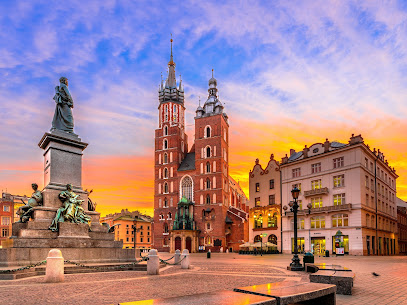
Wawel Royal Castle-State Art Collection
Discover Wawel Royal Castle, an iconic symbol of Kraków's history, featuring stunning architecture and an impressive art collection.
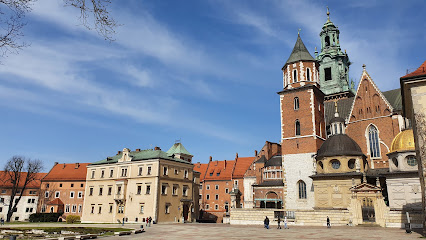
Wawel Cathedral
Explore the stunning Wawel Cathedral in Kraków, a masterpiece of Gothic architecture filled with rich history and breathtaking artistic treasures.
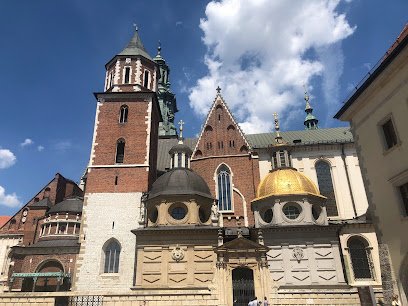
Wieliczka Salt Mine
Experience the enchanting underground world of the Wieliczka Salt Mine, where history, art, and geology merge in a breathtaking subterranean adventure.
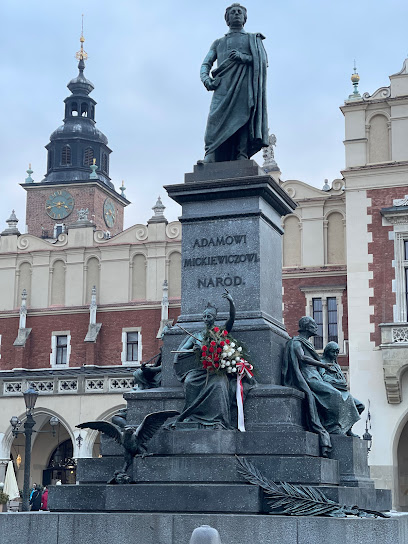
Wawel Dragon
Explore the legendary Wawel Dragon in Kraków, where history and folklore intertwine to create an unforgettable experience.
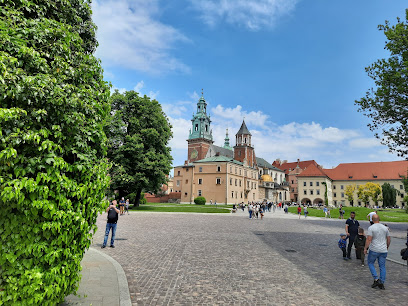
Planty
Discover the lush beauty and historical significance of Planty Park, Kraków's serene urban escape surrounding the historic Old Town.
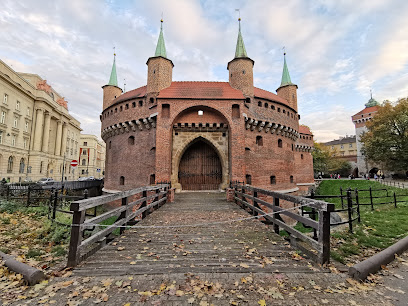
Kościuszko Mound
Explore Kościuszko Mound in Kraków, a historic monument offering breathtaking views, rich Polish heritage, and beautiful landscapes for every traveler.
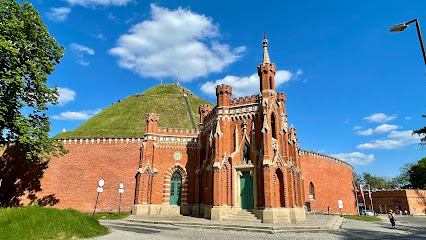
St. Mary's Basilica
Explore the architectural beauty and rich history of St. Mary's Basilica, a Gothic masterpiece in Kraków's vibrant Main Market Square.
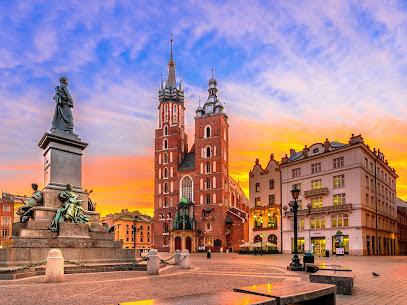
Polish Aviation Museum
Experience the history of flight at the Polish Aviation Museum, a captivating attraction in Kraków showcasing iconic aircraft and aviation innovations.
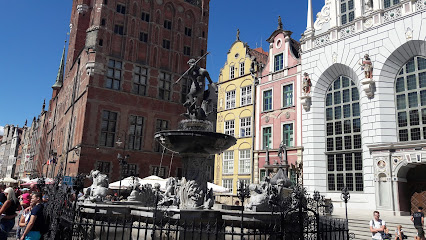
Father Bernatek’s Bridge
Explore the stunning Father Bernatek’s Bridge in Kraków, a captivating blend of art and architecture connecting scenic views along the Vistula River.
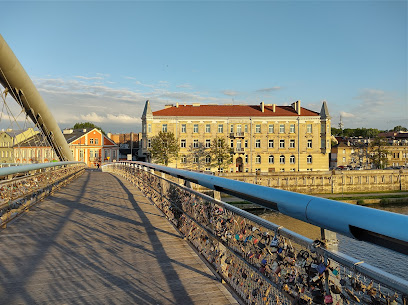
Sukiennice
Explore Sukiennice, the iconic Renaissance Cloth Hall in Kraków, a vibrant hub of art, culture, and shopping in the heart of Poland.
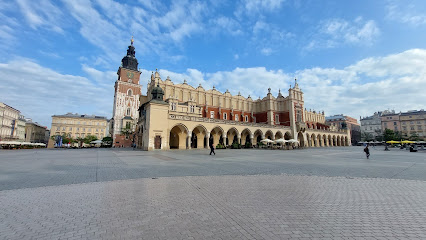
St. Florian's Gate
Discover the rich history of Kraków at St. Florian's Gate, a majestic entrance steeped in medieval charm and architectural beauty.
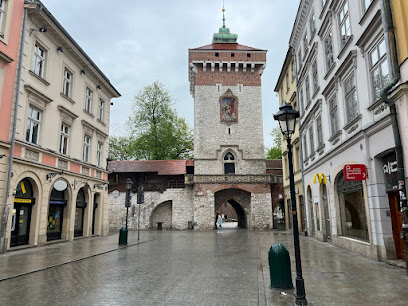
National Museum in Kraków
Uncover Poland's artistic legacy at the National Museum in Kraków, where centuries of art and culture await discovery in a grand historic setting.
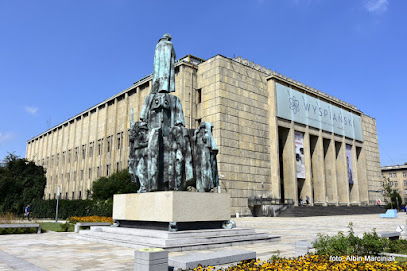
Krakus Mound
Discover the historical significance and stunning vistas at Krakus Mound, a must-visit landmark in Kraków, Poland.
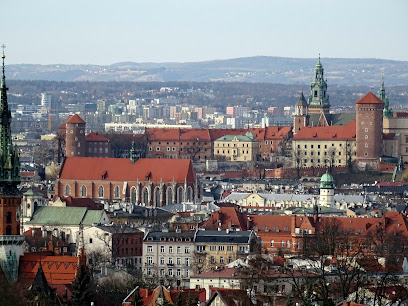
Rynek Underground Museum
Discover the hidden history of Kraków at the Rynek Underground Museum, where the past comes alive beneath the Main Market Square.
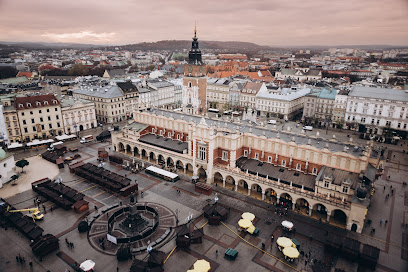
Unmissable attractions to see
Energylandia
Discover Energylandia, Poland's largest amusement park, packed with thrilling rides, family-friendly attractions, and unforgettable entertainment.
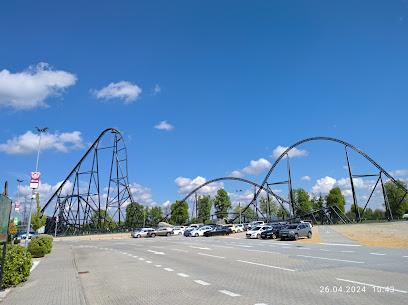
Rynek Główny
Explore the vibrant Rynek Główny, Kraków's historic main square, rich in architecture, culture, and local flavors.
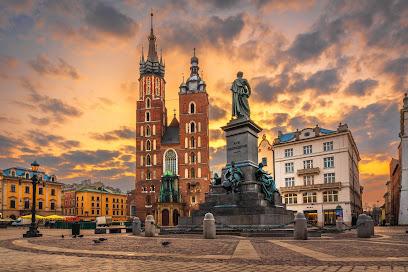
Wawel Royal Castle-State Art Collection
Explore Wawel Royal Castle, a majestic symbol of Polish history, art, and culture, where royalty once lived and ruled over the land.
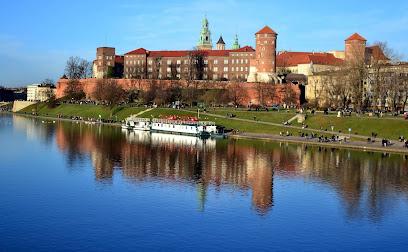
Wawel Cathedral
Explore the majestic Wawel Cathedral in Kraków, a historical marvel with stunning architecture and a rich cultural heritage that captivates every visitor.
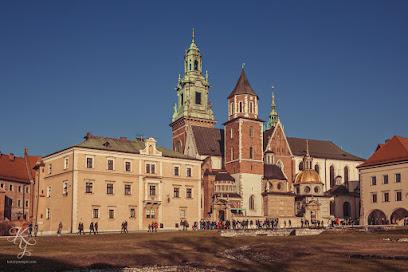
Wieliczka Salt Mine
Discover the breathtaking underground world of Wieliczka Salt Mine, a UNESCO site filled with history, art, and stunning salt sculptures.
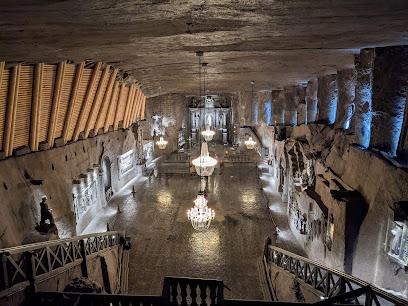
Ojcowski National Park
Discover the awe-inspiring landscapes and rich biodiversity of Ojcowski National Park in Poland, a perfect destination for nature lovers and adventurers.
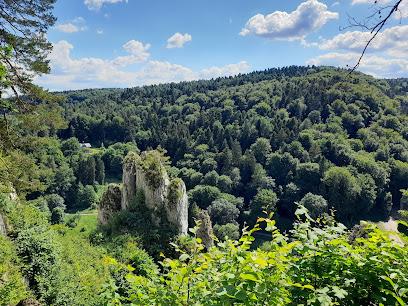
Kraków Zoo
Explore the enchanting Kraków Zoo, where wildlife conservation meets stunning landscapes in the heart of Poland's historic city.
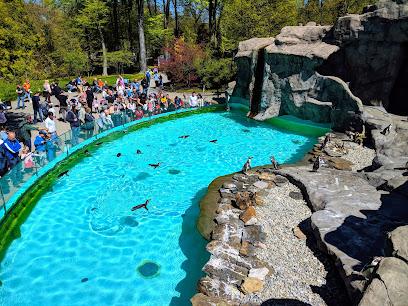
Smok Wawelski
Explore the legendary Smok Wawelski in Kraków, a captivating dragon sculpture steeped in Polish folklore and surrounded by stunning historical sites.
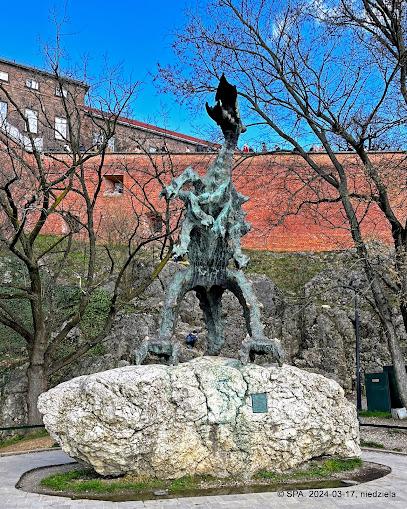
Oskar Schindler's Enamel Factory
Discover the poignant history of Oskar Schindler's Enamel Factory in Kraków, a museum dedicated to resilience during World War II.
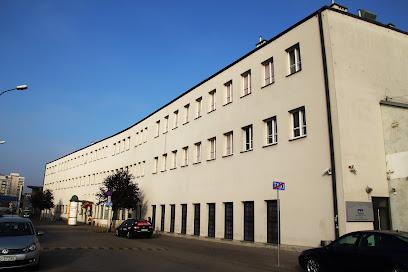
Kościuszko Mound
Experience the breathtaking views and rich history at Kościuszko Mound, a must-visit attraction in Kraków, Poland.
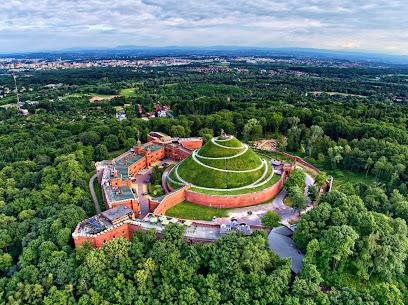
Planty
Explore Planty Park, a stunning green oasis encircling Kraków's Old Town, perfect for leisurely walks amidst nature and history.
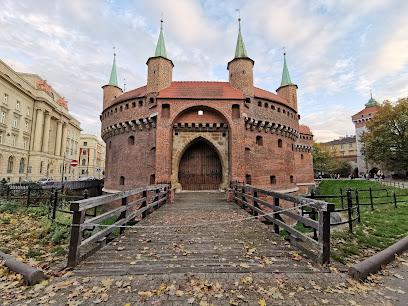
St. Mary's Basilica
Explore the breathtaking St. Mary's Basilica in Kraków, a Gothic masterpiece filled with stunning art and rich history in the heart of Poland.
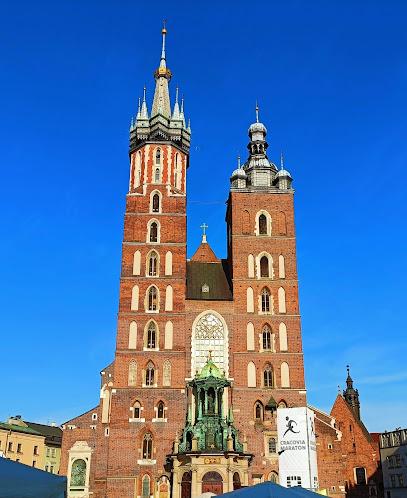
Muzeum Lotnictwa Polskiego
Visit the Polish Aviation Museum in Kraków to discover the rich history and innovative technology behind aviation, perfect for enthusiasts and families alike.
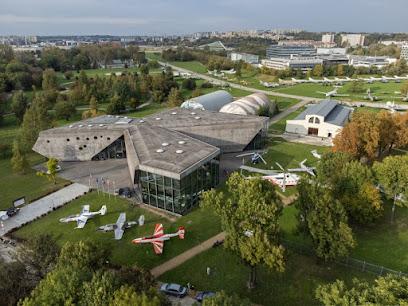
Pieskowa Skala Castle
Explore the stunning Pieskowa Skala Castle, a historic gem set in the heart of Ojców National Park, offering breathtaking views and rich cultural heritage.
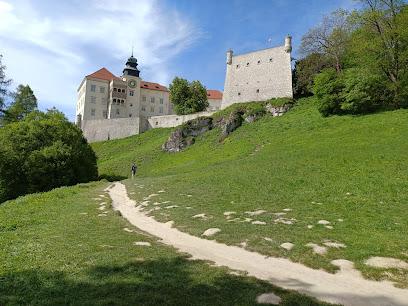
Stary Kleparz
Discover the flavors of Poland at Stary Kleparz, Kraków's historic farmers' market filled with fresh produce and local delicacies.
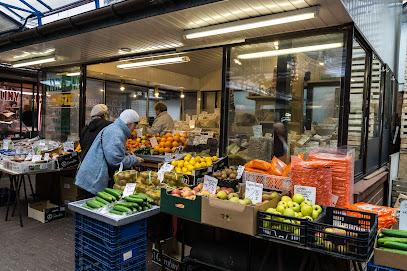
Essential places to dine
Pod Wawelem Kompania Kuflowa
Savor authentic Polish cuisine at Pod Wawelem Kompania Kuflowa in Kraków – where tradition meets flavor.
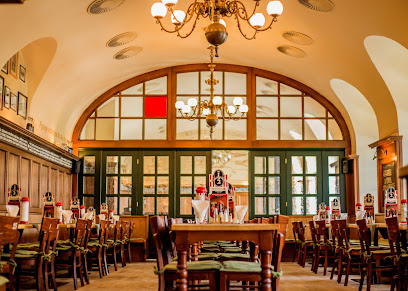
Kuchnia u Doroty
Discover the heart of Poland at Kuchnia u Doroty – where traditional recipes meet warm hospitality in Kraków's Stare Miasto.
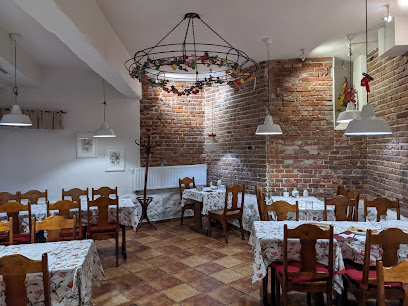
Morskie Oko
Discover authentic Polish flavors at Morskie Oko in Kraków - a perfect blend of tradition and hospitality.
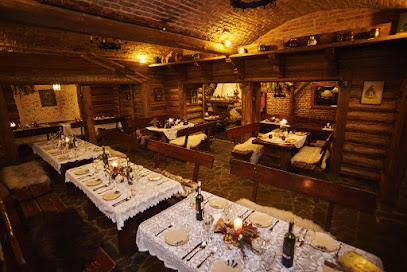
Sioux
Experience exquisite American cuisine at Sioux in Kraków – where succulent steaks meet vibrant atmosphere.
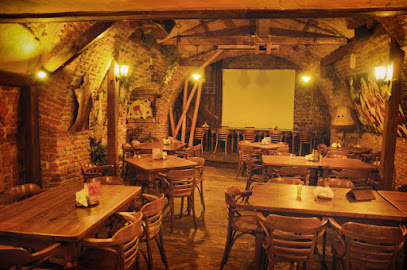
Starka | Restaurant & Vodkas
Experience authentic Polish flavors at Starka Restaurant & Vodkas in Kraków – where tradition meets taste.
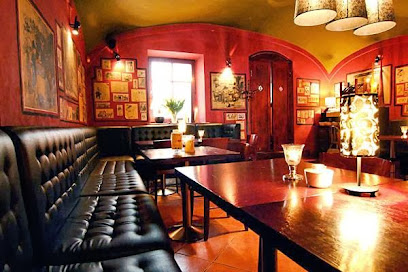
Czarna Kaczka/ Black Duck
Experience authentic Polish cuisine at Czarna Kaczka in Kraków - where tradition meets flavor in every dish.
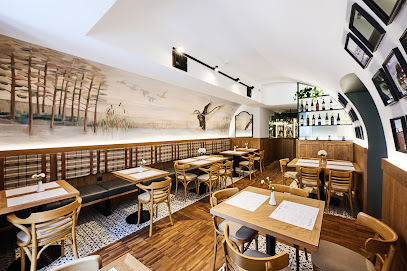
Milkbar Tomasza
Discover Milkbar Tomasza: Your go-to spot for authentic Polish breakfasts in the heart of Kraków's historic district.
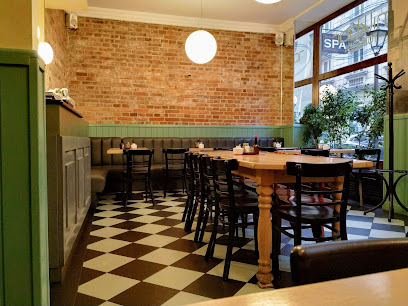
Karakter
Discover Karakter: A Meat Lover's Haven in Kraków Offering Exquisite Flavors & Cozy Ambiance for an Unforgettable Dining Experience.
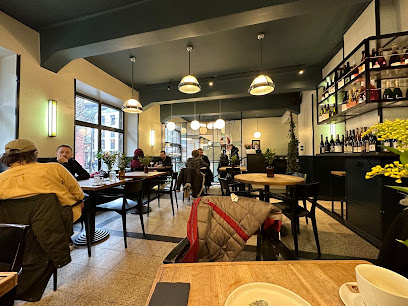
Miód Malina
Experience the best of European cuisine at Miód Malina in Kraków - where traditional flavors meet modern dining.
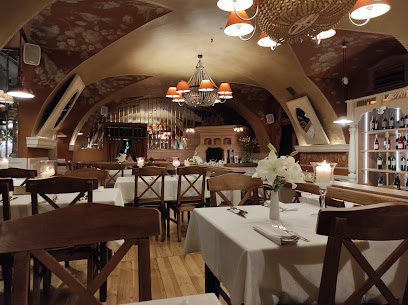
Chłopskie Jadło
Discover authentic Polish cuisine at Chłopskie Jadło in Kraków – where tradition meets flavor in a family-friendly atmosphere.
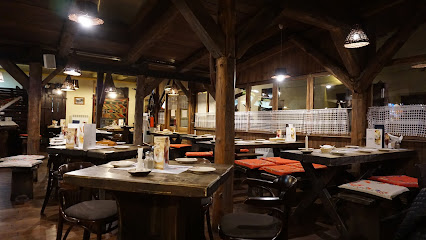
Mirror Bistro - Pierogi Bystro
Experience authentic Polish dumplings at Mirror Bistro - Pierogi Bystro in Kraków's vibrant Stare Miasto district.
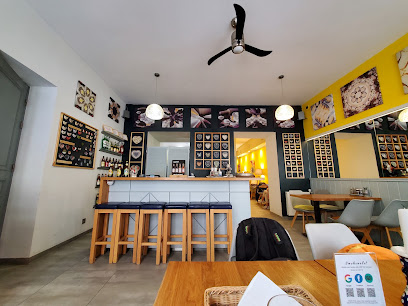
Kogel Mogel
Experience authentic Polish cuisine at Kogel Mogel in Kraków - where tradition meets modern dining.
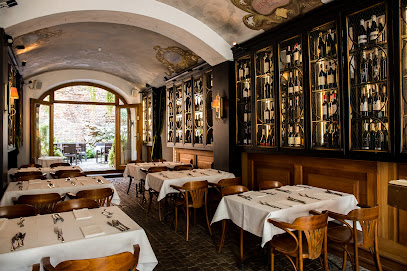
W Starej Kuchni Restaurant
Discover authentic Polish cuisine at W Starej Kuchni Restaurant in Kraków's historic center - A must-visit for every food lover!
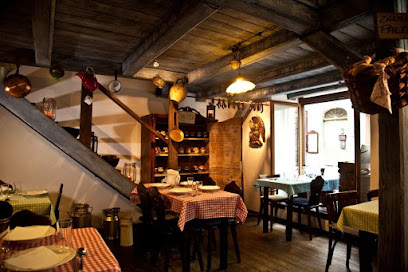
Stodoła
Discover the heart of Polish cuisine at Stodoła in Kraków's historic district; where tradition meets contemporary dining.
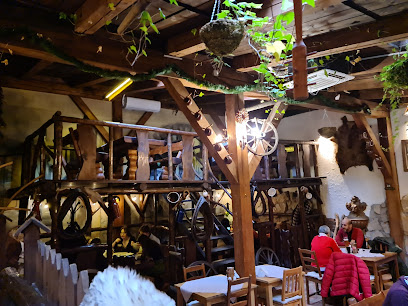
Goose Restaurant
Experience authentic Polish cuisine at Goose Restaurant in Kraków - perfect for families seeking delightful dining.
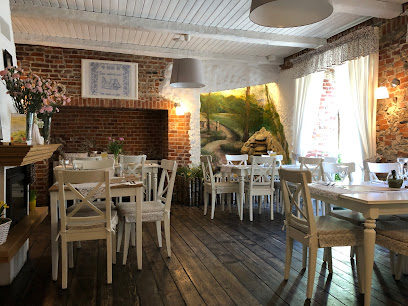
Markets, malls and hidden boutiques
Galeria Krakowska
Discover the ultimate shopping experience at Galeria Krakowska, featuring over 250 stores, diverse dining, and entertainment options in the heart of Kraków.
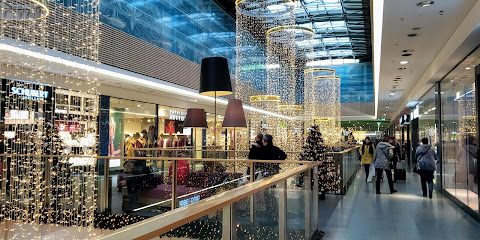
Galeria Kazimierz
Experience the best of shopping, dining, and entertainment at Galeria Kazimierz in Kraków, where modern retail meets local charm.
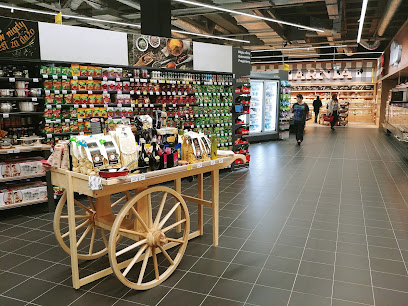
M1 Kraków
Explore M1 Kraków, a vibrant shopping mall with diverse stores, dining, and entertainment options perfect for tourists in Kraków.
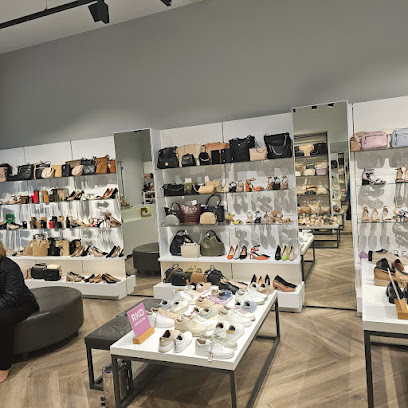
Factory Kraków
Discover unbeatable fashion deals at Factory Kraków, the premier outlet mall offering a wide range of brands and dining options for the ultimate shopping experience.
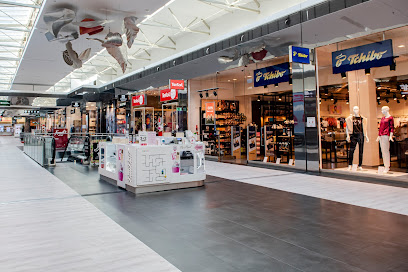
Stary Kleparz
Experience the vibrant Stary Kleparz farmers' market in Kraków, where local produce and Polish culture come together in a delightful atmosphere.
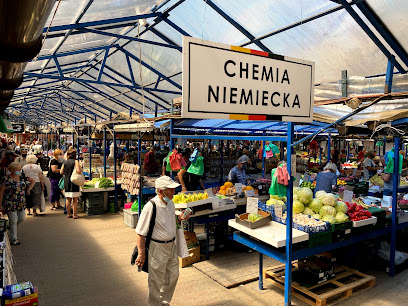
Flying Tiger Copenhagen
Discover quirky gifts, home goods, and toys at Flying Tiger Copenhagen in Kraków, a delightful stop for unique treasures and souvenirs.
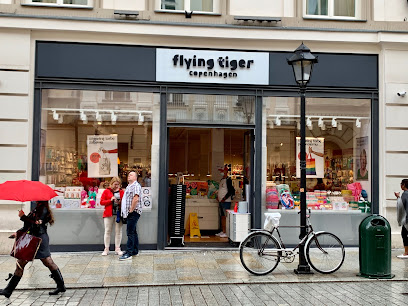
Market Hall
Explore the lively Market Hall in Kraków, a farmers' market bursting with fresh produce, unique crafts, and authentic Polish flavors.
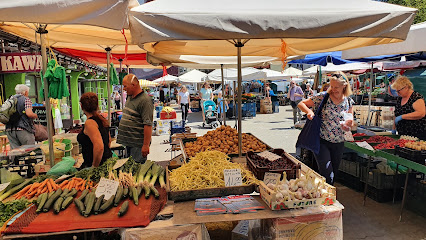
Vitkac Kraków
Discover luxury shopping at Vitkac Kraków, where high-end fashion meets exquisite dining in a stunning architectural setting.
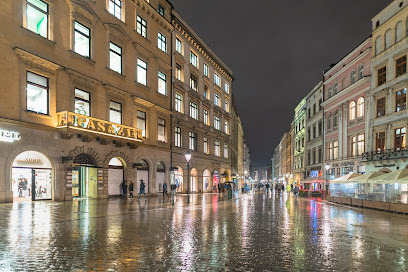
Szał. Art shop for artists
Discover the vibrant world of artistry at Szał, Kraków's premier art supply store, where creativity flourishes in every corner.
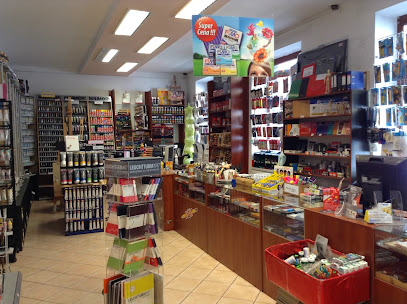
ZARA
Discover the latest fashion trends at ZARA Kraków, the ultimate shopping destination for stylish clothing and accessories in the heart of the city.
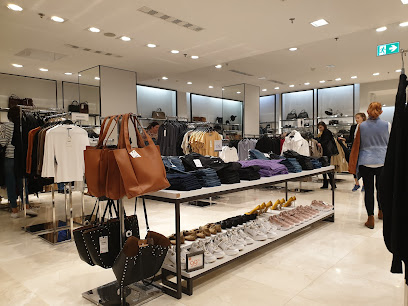
Underground Skateshop
Discover the ultimate skate culture at Underground Skateshop in Kraków, offering a unique selection of gear and streetwear for all skate enthusiasts.
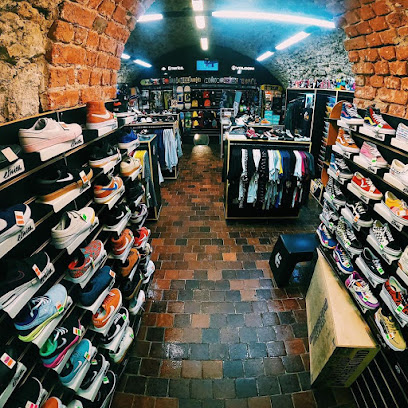
Galeria Autorska Andrzeja Mleczki
Discover the whimsical world of Andrzej Mleczko at Galeria Autorska, a unique art gallery and gift shop in Kraków, showcasing Polish creativity.
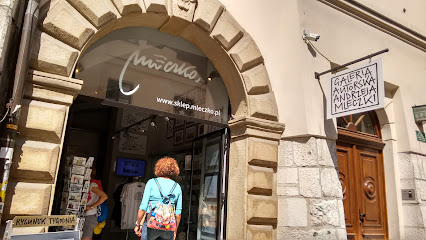
Paul's Boutique Record Store
Discover a treasure trove of music at Paul's Boutique Record Store in Kraków, featuring vinyl, CDs, and a vibrant atmosphere for music lovers.
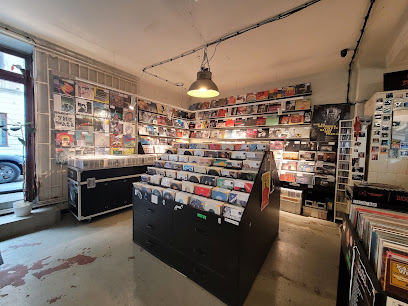
Galeria LueLue
Explore Galeria LueLue in Kraków for a unique encounter with contemporary art, local crafts, and the vibrant creativity of Polish artists.
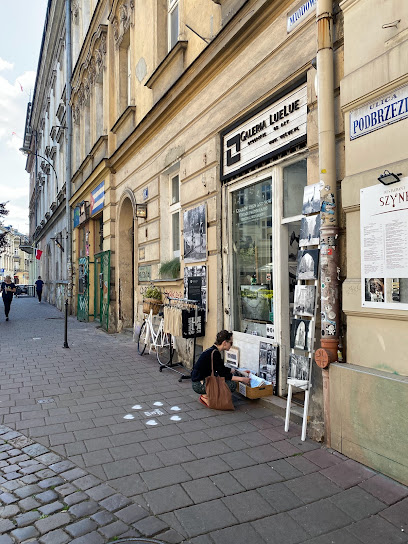
Komiksiarnia.pl
Explore the vibrant world of comics at Komiksiarnia.pl, Kraków's premier comic book store with a diverse selection for all ages.
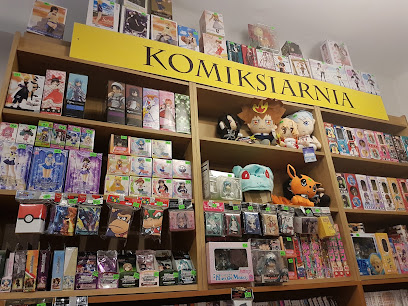
Essential bars & hidden hideouts
BaniaLuka
Discover BaniaLuka in Kraków: A cozy bar and restaurant offering delightful Polish cuisine and a vibrant atmosphere perfect for tourists.
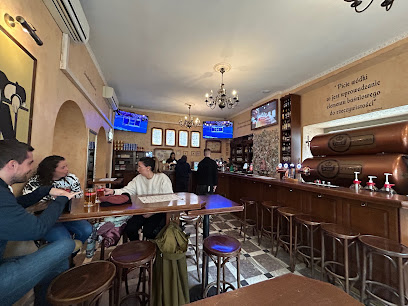
Cybermachina Game Pub - Kraków
Experience the ultimate gaming adventure at Cybermachina Game Pub in Kraków, where fun meets flavor in a vibrant atmosphere.
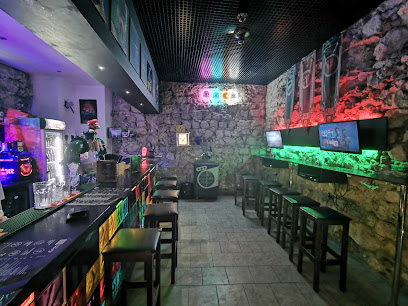
Eszeweria
Discover the unique atmosphere and exquisite drinks at Eszeweria, Kraków's eclectic bar offering a vibrant nightlife experience.
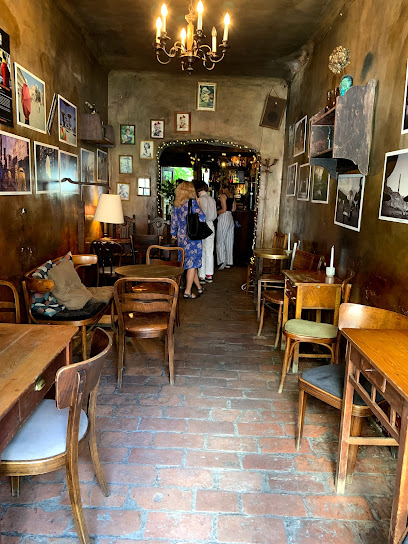
Mercy Brown Cocktails Jazz & Burlesque
Dive into the vibrant nightlife of Kraków at Mercy Brown Cocktails Jazz & Burlesque, where exquisite cocktails meet enchanting jazz and burlesque performances.
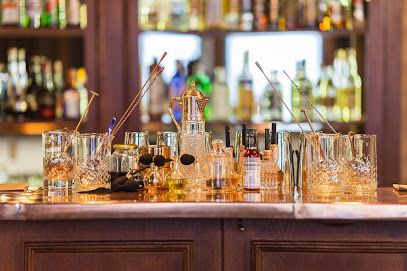
Dobry Kumpel
Experience vibrant nightlife in Kraków at Dobry Kumpel, where cocktails, live music, and history collide for an unforgettable evening.
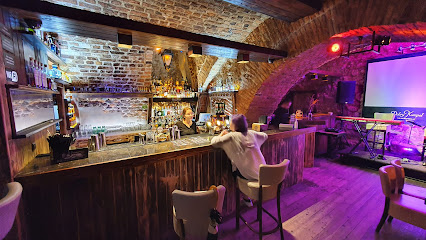
Trzcina cocktail bar
Experience the vibrant nightlife of Kraków at Trzcina Cocktail Bar, featuring expertly crafted cocktails in a cozy, inviting atmosphere.
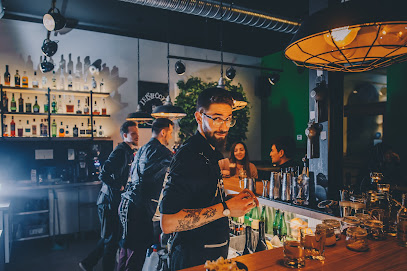
Propaganda Pub
Discover the lively atmosphere of Propaganda Pub in Kraków, a hub for local flavors and vibrant nightlife in the heart of the city.
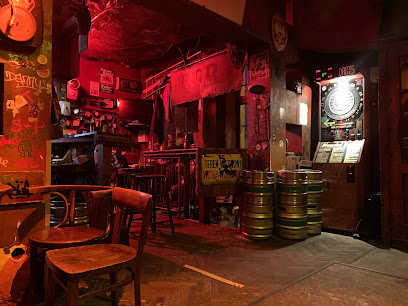
Movida | Cocktail Bar
Discover Movida, Kraków's vibrant cocktail bar offering unique drinks and delicious food in a lively atmosphere perfect for a night out.
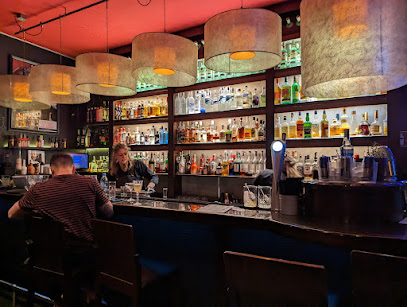
Duffy's Irish Bar
Discover the lively charm of Duffy's Irish Bar in Kraków, where every visit feels like a homecoming with great drinks, food, and live music.
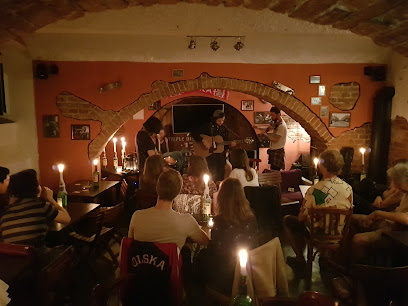
Free Pub
Discover the lively atmosphere of Free Pub in Kraków, where craft beers and local flavors come together for an unforgettable experience.
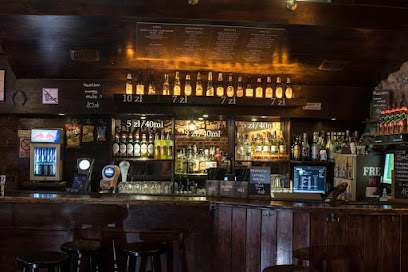
Budda cocktail bar
Budda Cocktail Bar: A lively cocktail haven in Kraków, offering unique drinks and an electric atmosphere for unforgettable nights.
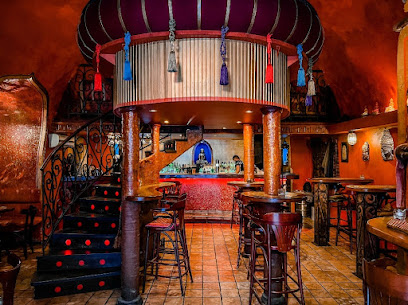
Absynt Cafe & Bar
Experience the vibrant atmosphere and delicious offerings at Absynt Cafe & Bar in Kraków's charming Stare Miasto.
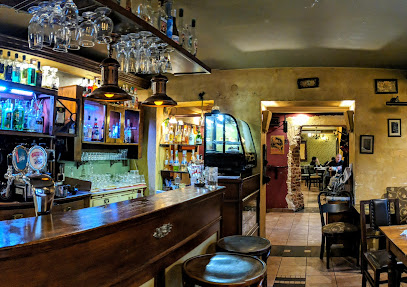
Krakowskie Zakąski Drink Bar & Garden
Experience the vibrant nightlife of Kraków at Krakowskie Zakąski Drink Bar & Garden, where local beers and cocktails await in a lively atmosphere.
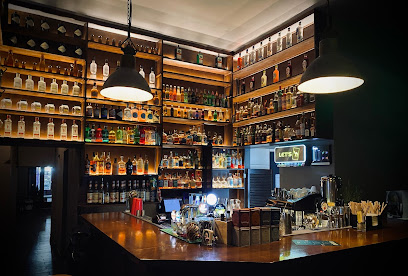
Black Gallery Pub
Immerse yourself in the lively ambiance of Black Gallery Pub in Kraków, where great music meets artistic flair and affordable drinks.
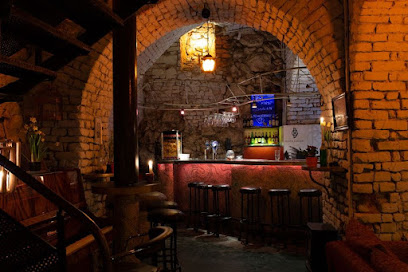
Local Phrases
-
- HelloCześć
[cheh-shch] - GoodbyeDo widzenia
[doh veed-zen-ya] - YesTak
[tahk] - NoNie
[nyeh] - Please/You're welcomeProszę
[proh-sheh] - Thank youDziękuję
[jyen-koo-yeh] - Excuse me/SorryPrzepraszam
[psheh-prah-shahm] - How are you?Jak się masz?
[yahk shcheh mah-sh] - Fine. And you?Dobrze. A ty?
[doh-bzheh. ah tih] - Do you speak English?Czy mówisz po angielsku?
[chi moo-veesh poh ahn-gyehl-skoo] - I don't understandNie rozumiem
[nyeh roh-zoo-myem]
- HelloCześć
-
- I'd like to see the menu, pleaseChciałbym zobaczyć menu, proszę
[h-chyah-bim zoh-bah-chich meh-noo, proh-sheh] - I don't eat meatNie jem mięsa
[nyeh yem myen-sah] - Cheers!Na zdrowie!
[nah zdroh-vee-eh] - I would like to pay, pleaseChciałbym zapłacić, proszę
[h-chyah-bim zah-plah-cheech, proh-sheh]
- I'd like to see the menu, pleaseChciałbym zobaczyć menu, proszę
-
- Help!Pomocy!
[poh-moh-tsi] - Go away!Idź sobie!
[eej soh-byeh] - Call the Police!Zadzwoń po policję!
[zahd-zwohn poh poh-leet-syeh] - Call a doctor!Zadzwoń po lekarza!
[zahd-zwohn poh leh-kah-zah] - I'm lostZgubiłem się
[zgoo-bee-wem shcheh] - I'm illJestem chory/chora
[yeh-stem hoh-ri/hoh-rah]
- Help!Pomocy!
-
- I'd like to buy...Chciałbym kupić...
[h-chyah-bim koo-peech] - I'm just lookingTylko się rozglądam
[tih-koh shcheh rohz-gwah-dahm] - How much is it?Ile to kosztuje?
[ee-leh toh kohs-too-yeh] - That's too expensiveTo za drogo
[toh zah droh-goh] - Can you lower the price?Czy możesz obniżyć cenę?
[chi moo-zhesh ohb-nee-zhich tseh-neh]
- I'd like to buy...Chciałbym kupić...
-
- What time is it?Która jest godzina?
[ktoo-rah yest goh-dzee-nah] - It's one o'clockJest pierwsza
[yest pyehr-foosh-ah] - Half past (10)Pół do dziesiątej
[poow doh dzyeh-syahnt-ehy] - MorningRano
[rah-noh] - AfternoonPopołudnie
[poh-poo-wood-nyeh] - EveningWieczór
[vyeh-choor] - YesterdayWczoraj
[v-choh-rye] - TodayDziś
[jeesh] - TomorrowJutro
[yoo-troh] - 1Jeden
[yeh-dehn] - 2Dwa
[dvah] - 3Trzy
[tshih] - 4Cztery
[ch-teh-rih] - 5Pięć
[pyehnch] - 6Sześć
[shchehshch] - 7Siedem
[shye-dehm] - 8Osiem
[oh-shyem] - 9Dziewięć
[dzyeh-vyenhch] - 10Dziesięć
[dzyeh-shehnch]
- What time is it?Która jest godzina?
-
- Where's a/the...?Gdzie jest...
[gdyeh yest] - What's the address?Jaki jest adres?
[yah-ki yest ah-drehs] - Can you show me (on the map)?Czy możesz mi pokazać (na mapie)?
[chi moo-zhesh mee poh-kah-zach (nah mah-pyeh)] - When's the next (bus)?Kiedy jest następny (autobus)?
[kyeh-deh yest nah-stehp-ny (ow-toh-boos)] - A ticket (to ....)Bilet (do ....)
[bee-let (doh)]
- Where's a/the...?Gdzie jest...
History of Krakow
-
Krakow was founded in the 7th century and has since grown into one of Poland's most important cities. According to legend, the city was established by the mythical ruler Krakus, who built it above a cave occupied by a dragon. This legend is commemorated by the Wawel Dragon statue near Wawel Castle.
-
In the Middle Ages, Krakow became the capital of Poland and a major center of trade and culture. Its strategic location on the Vistula River made it an ideal hub for merchants and artisans. The city’s first university, Jagiellonian University, was founded in 1364 by King Casimir III the Great, marking Krakow as a center for learning and scholarship.
-
The Renaissance era was a golden age for Krakow. The city flourished as a center of arts, sciences, and trade. The construction of Wawel Cathedral and the renovation of Wawel Castle during this period are notable highlights. The Sigismund Chapel, often regarded as a pearl of the Renaissance north of the Alps, was also built during this time.
-
After the partitions of Poland at the end of the 18th century, Krakow was incorporated into the Austrian Empire. Despite the foreign rule, the city retained its cultural significance. The 19th century saw the development of Krakow's infrastructure, including the establishment of the Planty Park, which replaced the old city walls.
-
During World War II, Krakow was occupied by Nazi Germany and became the capital of the General Government. The city's Jewish population suffered immensely during the Holocaust, with many being sent to concentration camps such as Auschwitz. The Krakow Ghetto and the Plaszow labor camp were sites of horrific persecution.
-
After World War II, Krakow became part of the People's Republic of Poland under Soviet influence. The city developed industrially, most notably with the construction of the Nowa Huta steelworks. Despite the political repression, Krakow remained a stronghold of intellectual and cultural resistance, playing a significant role in the Solidarity movement of the 1980s.
-
Following the fall of communism in 1989, Krakow emerged as a vibrant cultural and economic center in Poland. The city's historic sites, including the Old Town, Wawel Castle, and Kazimierz district, have been meticulously restored. Krakow's designation as a UNESCO World Heritage Site in 1978 has helped preserve its rich heritage.
Krakow Essentials
-
Krakow is well-connected by air, rail, and road. The John Paul II International Airport Kraków–Balice (KRK) is the main airport, located about 11 kilometers from the city center. Direct flights are available from many major European cities. From the airport, you can take a train, bus, or taxi to reach the city center. The train ride takes about 20 minutes. Krakow is also accessible by train from other Polish cities and neighboring countries. The main railway station, Kraków Główny, is centrally located. Buses and cars are other viable options; the A4 motorway connects Krakow with other major cities.
-
Krakow has an efficient public transportation system, which includes buses and trams. Tickets can be purchased at kiosks, ticket machines, or via a mobile app. Validate your ticket immediately upon boarding. Taxis are available but make sure to use licensed ones. Ride-sharing apps like Uber and Bolt are also popular. For short distances, walking and cycling are great options. The city has many bike rental services and designated bike lanes.
-
The official currency is the Polish Zloty (PLN). Credit and debit cards are widely accepted in hotels, restaurants, and shops. However, it's advisable to carry some cash for small purchases and in case you visit places that do not accept cards. ATMs are widely available. Currency exchange offices (Kantor) offer competitive rates but always check the exchange rate before making a transaction.
-
Krakow is generally a safe city, but like any major tourist destination, it's important to stay vigilant. Petty crimes like pickpocketing can occur, especially in crowded areas like the Main Market Square and public transport. Avoid poorly lit areas at night. Kazimierz and Nowa Huta are generally safe but exercise caution, especially after dark. Always keep an eye on your belongings and use hotel safes for valuables.
-
In case of emergency, dial 112 for immediate assistance. This number works for police, medical emergencies, and fire services. The main hospitals in Krakow include University Hospital and St. Raphael Hospital. Pharmacies, known as 'Apteka', are widely available, with some open 24/7. It's advisable to have travel insurance that covers medical emergencies and other unexpected events.
-
Fashion: Do dress modestly, especially when visiting religious sites like churches. Avoid overly casual attire in fine dining restaurants. Religion: Do respect local customs and traditions. When visiting churches, dress modestly and avoid loud conversations. Public Transport: Do give up your seat to elderly passengers and pregnant women. Don’t talk loudly or disrupt other passengers. Greetings: Do greet people with a firm handshake and maintain eye contact. Eating & Drinking: Do try local dishes like pierogi and zapiekanka. Don’t skip tipping; 10% is customary in restaurants.
-
To experience Krakow like a local, visit the less touristy districts like Podgórze and Kazimierz. Enjoy a Vistula River cruise or rent a bike to explore the city. Try traditional Polish cuisine at a 'milk bar' (Bar Mleczny). Attend a local festival or cultural event to immerse yourself in the local culture. Visit the local markets like Hala Targowa for fresh produce and unique finds. Engage with locals; they are generally friendly and willing to share insights about their city.
Trending Landmark in Krakow
Nearby Cities to Krakow
-
Things To Do in Bielsko-Biala
-
Things To Do in Tarnow
-
Things To Do in Zakopane
-
Things To Do in Gliwice
-
Things To Do in Kielce
-
Things To Do in Czestochowa
-
Things To Do in Poprad
-
Things To Do in Ostrava
-
Things To Do in Žilina
-
Things To Do in Martin
-
Things To Do in Rzeszow
-
Things To Do in Prešov
-
Things To Do in Opole
-
Things To Do in Banská Bystrica
-
Things To Do in Radom

















